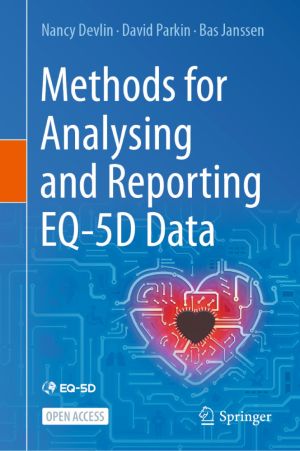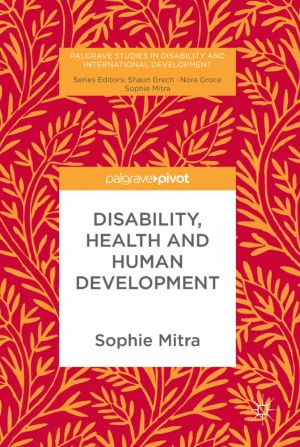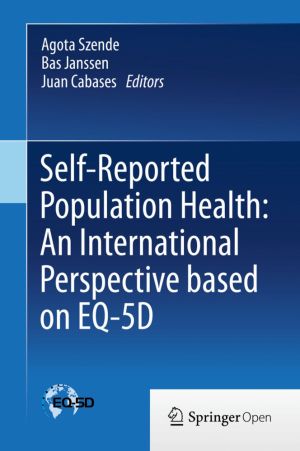Self-Reported Population Health: An International Perspective based on EQ-5D
by Agota Szende, Bas Janssen, Juan Cabases
DescriptionDetailsHashtagsReport an issue 






Book Description
The EQ-5D instrument, as a standardized, cross-culturally validated measure of self-assessed health has a hugely important role in understanding population health within and across countries. Over the past two decades a wealth of international population health survey data have been accumulated by the EuroQol Group from research conducted in many countries across four continents. One of the success factors of the EQ-5D instruments has been the easy availability of national or international sets of EQ-5D data, as well as clear explanations and guidance for users. There is an unmet need to produce a comprehensive book that captures up-to-date and expanded information of EQ-5D self-reported health and index values. EQ-5D population norms and cross-country analyses are provided from representative national surveys of 20 countries and additional regional surveys. This book will be a must for those who believe that how people report and value health is very important.This open book is licensed under a Creative Commons License (CC BY-NC). You can download Self-Reported Population Health: An International Perspective based on EQ-5D ebook for free in PDF format (2.3 MB).
Book Details
Title
Self-Reported Population Health: An International Perspective based on EQ-5D
Subject
Medical
Publisher
Springer
Published
2014
Pages
210
Edition
1
Language
English
ISBN13
9789400775954
ISBN10
9400775954
ISBN13 Digital
9789400775961
ISBN10 Digital
9400775962
PDF Size
2.3 MB
License

Related Books

This open book takes a critical and international perspective to the mainstreaming of the Global Citizenship Concept and analyses the key issues regarding global citizenship education across the world. In that respect, it addresses a pressing need to provide further conceptual input and to open global citizenship agendas to diversity and indigeneit...

This open access book is the first published guide about how to analyse data produced by the EQ-5D, one of the most widely used Patient Reported Outcomes questionnaires world wide. The authors provide practical, clear and comprehensive guidance in five concise chapters. Following an overview of the EQ-5D and its analysis, we describe how the questi...

This book is a step-by-step introduction on how shell scripting can help solve many of the data processing tasks that Health and Life specialists face everyday with minimal software dependencies. The examples presented in the book show how simple command line tools can be used and combined to retrieve data and text from web resources, to filter and...

This book provides a set of conceptual, empirical, and comparative chapters that apply a public policy perspective to investigate the political and institutional factors driving the use of evidence to inform health policy in low, middle, and high income settings. The work presents key findings from the Getting Research Into Policy (GRIP-Health) pro...

This volume addresses the current debate on extended working life policy by considering the influence of gender and health on the experiences of older workers. Bringing together an international team of scholars, it tackles issues as gender, health status and job/ occupational characteristics that structure the capacity and outcomes associated with...

This book introduces the human development model to define disability and map its links with health and wellbeing, based on Sen's capability approach. The author uses panel survey data with internationally comparable questions on disability for Ethiopia, Malawi, Tanzania and Uganda. It presents evidence on the prevalence of disability and its ...

